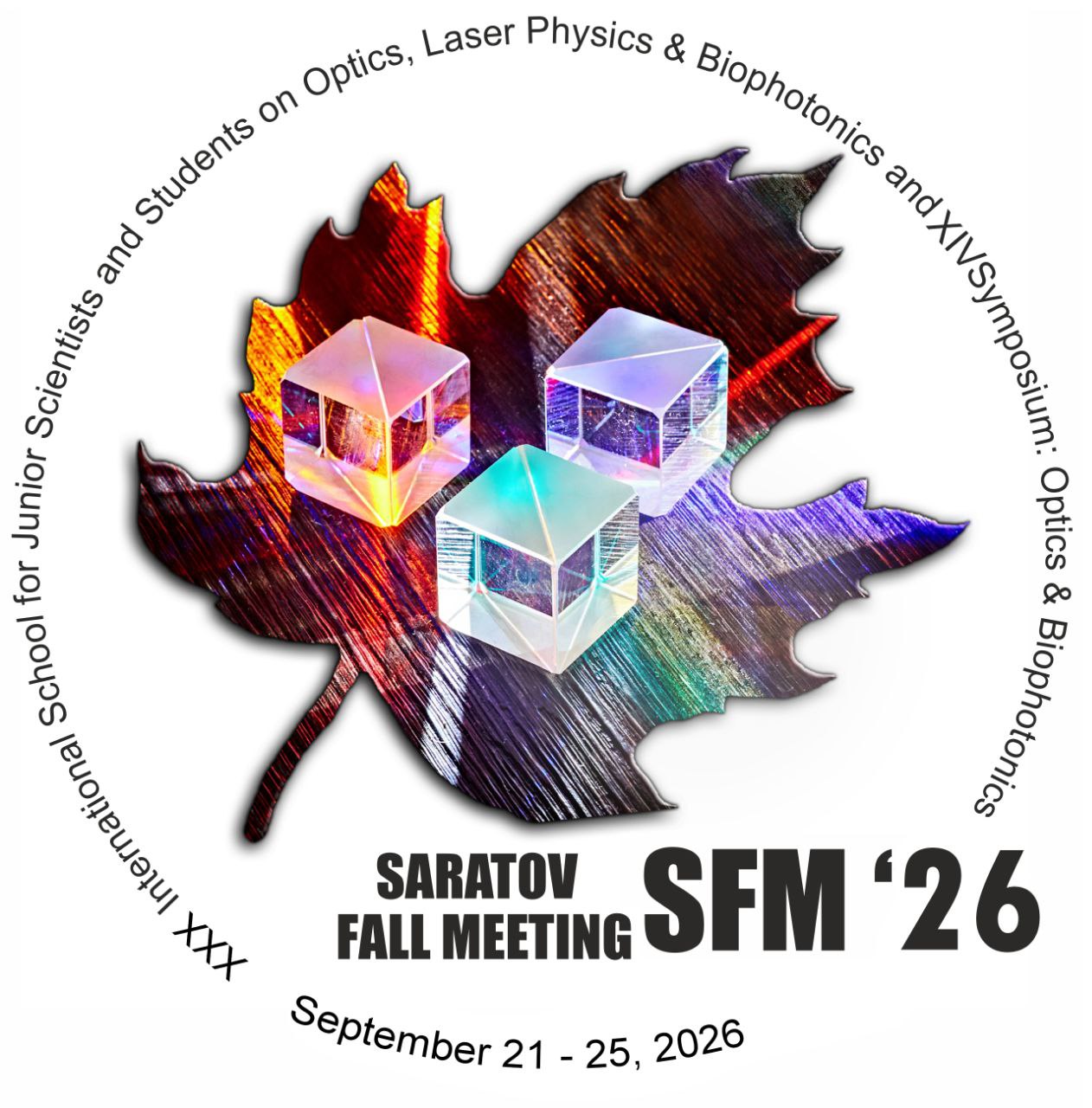Application of nonstationary THz spectroscopy for medical diagnostics
Vladimir L. Vaks 1,2, E. G. Domracheva 1,2, M. B. Chernyaeva 1,2, V. A. Anfertev 1,2
1 IPM RAS, Nizhny Novgorod, Russia
2 Lobachevsky State University, Nizhny Novgorod, Russia
Abstract
Nowadays the trend in medical diagnostics is revealing the metabolic profile of state (healthy and at pathologies or diseases) of human organism. The metabolites are substances appearing at chemical reactions in organism and characterizing the processes there. Some of them can be specific for state at disease and can be used for medical diagnostics in the early stages in particularly. A THz spectroscopy based on nonstationary effects such as inducing and decaying the free dumping polarization in a gas sample at the interaction of radiation and gas molecules can be considered as a high sensitive method of investigating the multicomponent gas mixtures. The THz gas spectroscopy method allows to detect volatile compounds in a multicomponent gas mixture, including ones of biological origin. The THz gas spectroscopy methods are promising to study the volatile compounds including vapors and products of thermal decomposition of macromolecules as primary and secondary metabolites of biological tissues or liquids. The results of applications of the spectrometers of THz frequency ranges with phase switching and with fast frequency sweeping developed by the authors for medical aims are presented in this work.
The authors acknowledge the support from Russian Scientific Foundation (grant 21-72-30020,
https://rscf.ru/project/21-72-30020/).
File with abstract
Speaker
Vladimir Vaks
IPM RAS, Lobachevsky State University
Russia
Discussion
Ask question


